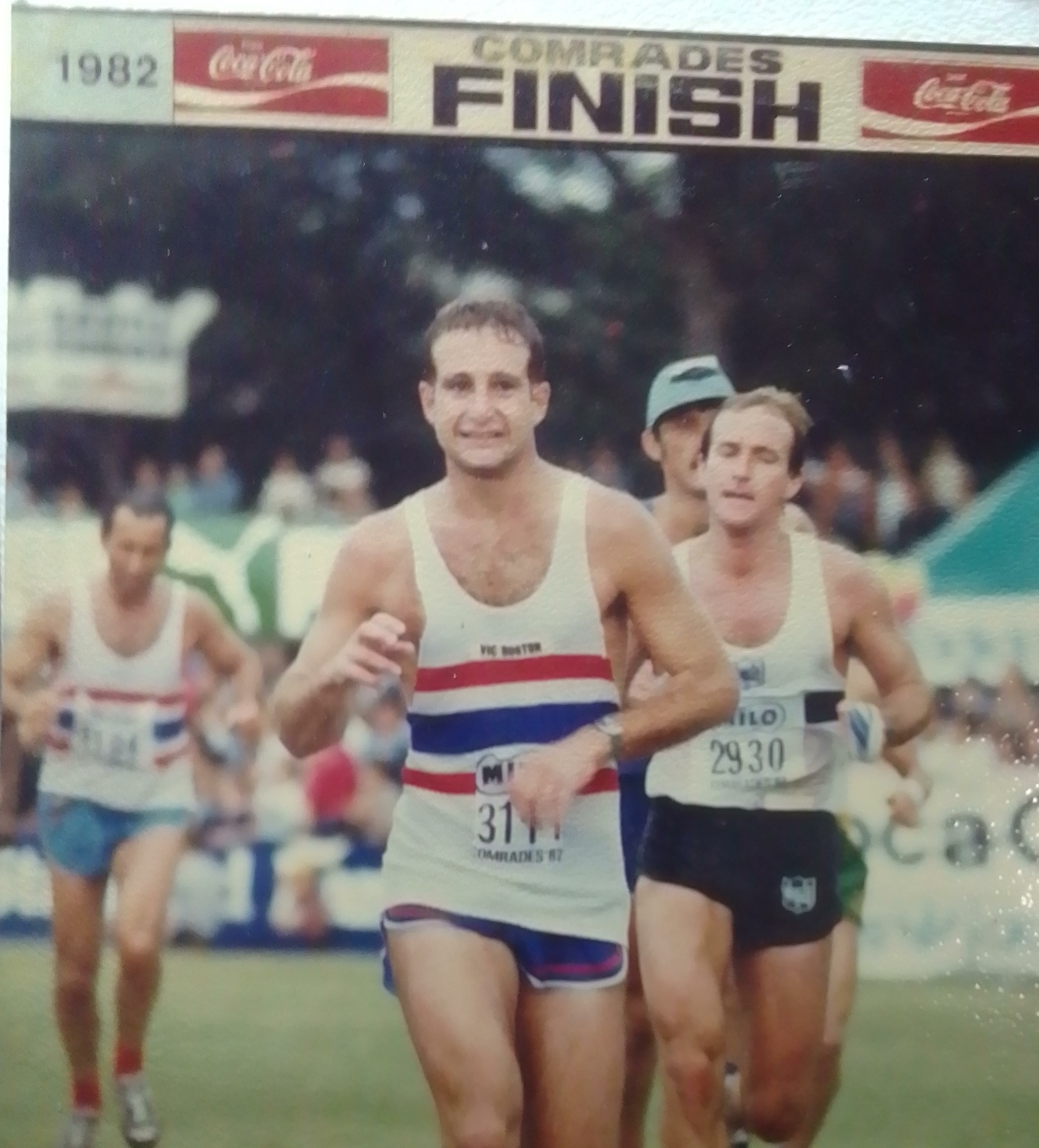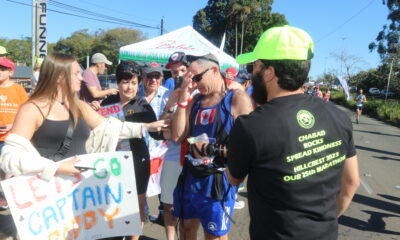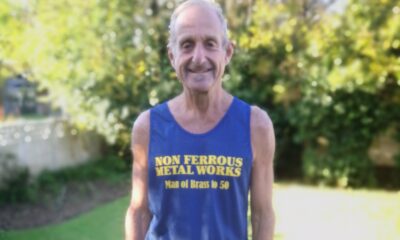
Sport

Boston takes high road with 46th Comrades Marathon
Dr Vic Boston, set to run his 46th consecutive Comrades Marathon this Sunday, 9 June, hasn’t yet reached a diagnosis for why he has run this race every year for nearly half a century.
The only time Boston didn’t participate in the Comrades since 1977 was when it was cancelled in 2020 and 2021 due to the COVID-19 pandemic.
He’s third on the most-medals list, with only two others having run more Comrades than the 64-year-old Boston. Ahead of him are 72-year-old Barry Holland on 49 medals; and Louis Massyn on 48. Holland, who has completed his 49th race consecutively, recently told the Citizen that 50 would “be enough for him”.
“I’ve got 45 medals now,” Boston says. “It’s madness. Can you believe it?”
He told the SA Jewish Report he’s motivated to keep going because of “the fact that I’ve done so much and I’m so near the top, I may as well try to get to the top”.
Boston is one of the more than 13 600 runners who have completed the Comrades more than 10 times since 1921, thus earning their place on the coveted Comrades Green Number Roll of Honour. Much fewer, however, have a Quadruple Green Number like Boston.
It was 60 years ago that the running bug bit Boston when his father took him for a run in Linksfield Ridge Park. “My father started me off running, and I could feel how good it was for me,” he says.
Boston did his first Comrades in 1977 as a 17-year-old. His best time was just more than seven hours, eight minutes in 1984.
He says he’s feeling “all right” heading into the 97th Comrades, an up run. “To be honest, it’s so many years and years of running, it takes a toll on the body. It’s not running per se, it’s running Comrades.
“Remembering all the downhill silvers I got, it eventually damages you.” The race is downhill every second year.
Boston has also done multiple Two Oceans Marathons and Ironmans.
“So, of course, the body isn’t what it was. But the Comrades is a great race. It has become harder and harder for me, not because of age so much but because of cumulative damage from years and years of running.”
He has been running consistently ahead the race on Sunday, has done some gym work, and has planned meticulously. “You don’t do the homework, you don’t get through,” he says.
“The training routines have changed. Today, they give you a programme where you are doing much less. But in the early days, if you wanted to achieve that silver, you ran a lot. So, it all depends on what one wants to go for. I like to run seven days a week, but if I need to rest, I’ll just take a day or two to recover. You’re not going to lose any fitness by resting a day or two, certainly not if you do a swim. It helps you to recover. You’ve got to do at least 80kms a week during Comrades season.”
Boston participated in the Comrades roadshow that went to several locations recently to empower its 22 500 entrants to prepare for this year’s race. Local running legends spoke at each of its stops. Charne Bosman, the 2016 Comrades Marathon winner, spoke in Pretoria; and Boston spoke in Johannesburg.
“I talked about my experiences,” Boston says. “I endorsed a lot of what [Comrades coach, Lindsey Parry] said, and I added a little bit. I gave training and nutrition advice.”
Boston recently told Holland, who has done the most Comrades runs in the world and is apparently struggling with his knees, “Even if you don’t run, you’re still king. It’s been so many years, it’s cumulative damage, man. Compared to people who have done 20 Comrades, their body is still fresh.”
Boston remembers his first Comrades because “you just go out and run. Your first is your easiest because you don’t have to beat any previous times.” Two other memorable moments were his first out of 17 silver medals, and doing his 40th Comrades when, he recalled, being surrounded by all his friends.
“During the run, you concentrate. You do look around at the changing scenery and see all the spectators. The whole thing is an experience. It’s a difficult race. It looks a lot easier on TV. You’ve got to be prepared for it, and when you get to the race, you’ve got to pace yourself properly. It’s a long and difficult day. The terrain isn’t easy – up, down, up, down, and so on.”
Boston advises first-time Comrades entrants, “Have early nights the whole week because you may not get much sleep the night before. Eat early on the night before, because you’re getting up early and if you eat late, you may want to go to the toilet only at 08:00. Don’t eat breakfast for the same reason. Generally, people aren’t hungry at 04:00, so don’t force it down. You’ll have had enough food the night before. They’ve got toilets, but each time you run past a toilet, there will be a queue of five other runners. Eat what you’re used to the night before – carbohydrates, fat, and protein. Protein is important to replenish after the race. Stay as close to the start as possible so you can just walk. I don’t want to find a car at 05:00. Enjoy the race as a novice.”
Boston will join thousands of runners outside Durban City Hall this Sunday for the up run to Pietermaritzburg. He says uphill is better logistically than downhill because the airport is in Durban and the weather isn’t cold at the start.
Due to roadworks at the Umlaas Road Interchange, this year’s race is 85.91km, the shortest route in Comrades history, nearly 820m shorter than the last up run in 2019. But, however long or difficult it may be, Boston will be there no matter what.










